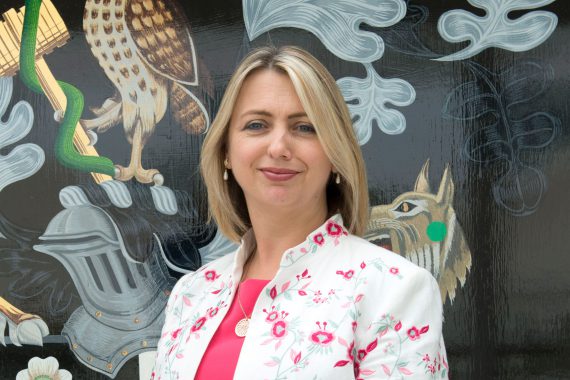The health secretary has asked former RCGP chair Professor Helen Stokes-Lampard to advise the Government on the successful rollout of its GP data project.
Yesterday, it was announced that the controversial planned mass extraction of patient data from GP records will be delayed from July to September and patients given longer to opt-out of the extraction.
In a blog published by the HSJ today, interim NHS Digital chief executive Simon Bolton revealed that health secretary Matt Hancock has recruited Professor Stokes-Lampard – now chair of the Academy of Medical Royal Colleges – onto the project.
She has been asked to ‘advise [Mr Hancock] on how we can ensure this programme rolls out successfully’, Mr Bolton said.
The health secretary has also asked national statistician Sir Ian Diamond to advise on following ‘best practice in preserving privacy’, drawing on Office for National Statistics (ONS) experience of making data ‘available for research in a privacy-preserving way’, he added.
Mr Bolton added that the delayed patient data sharing plan ‘will deliver better health and care outcomes for people across the country’ and NHS Digital is ‘absolutely determined to take people with us on this crucial mission’.
He said: ‘Data saves lives. There is no clearer demonstration of this than our response to the pandemic which has been fuelled by data.’
NHS Digital has been using data ‘for many years’ to ‘better understand and develop cures for all types of serious illnesses and plan the most effective services for the NHS’ but the current system is ‘over 10 years old and outdated’, he added.
The General Practice Data for Planning and Research (GPDPR), which will replace the GP Extraction Service (GPES), had been due to launch on 1 July.
But Pulse revealed last month that privacy campaigners fear the new automatic extractions of data will be ‘far bigger’ and ‘more intrusive’ than the scrapped care.data project.
The BMA last week called for a delay to the launch of the programme, on which it has been advising the Government. The RCGP, which has also advised the Government, had also raised concerns about patients being insufficiently informed of the programme.
Pulse October survey
Take our July 2025 survey to potentially win £1.000 worth of tokens














too little too late
Confidence undermined
many will opt out and stay opted out
Dear God. ‘RCGP Chairs’ seem to be trawled from the depts of intellectual professional society and this one might take the gold medal.
Stick to the ”catwalk”
Interesting development, the current argument, centres on the principles of confidentiality, but for many patients the issue is simply making progress in a collapsing system.
So government, their agencies, private computer companies, and the people they sell to will all be able to access our records. Clearly, someone, somewhere is making money out of this. Usually a politician.
We however will not. Patients must do so through their GP, if they can get an appointment, an issue about which there is some controversy, or through their consultant, at the annual appointment.
Patients, who run companies, make millions, solve complex problems, are all deemed to be insufficiently wise and responsible to access their own records. Medicine is not that complicated or clever, you need a diagnosis, then you google the treatment.
It require institutions such as the GMC and RCGP, to make it into an incomprehensible mess.
Is this the same person who had £5 million funding to explore Social prescribing?
Outgoing RCGP chair Professor Helen Stokes-Lampard is to head up a new National Academy for Social Prescribing, which will be backed by £5m of government funding
https://www.gponline.com/outgoing-rcgp-chair-head-new-national-academy-social-prescribing/article/1663295
The opt out has just gained even more momentum and credibility. Big data, big money, big breaches
another quangocrat
all must opt out of records being sold to highest bidder
An idyllic appointment. Hancock is sharp, but blunt. It’s like when Tony Blair does consultancy. Good income all this portfolio-isation. If more FRCGPs, PhDs and MBEs/OBEs/CBEs actually worked in medicine with common Joe and Jill, they might actually regain some form of common sense and awareness.